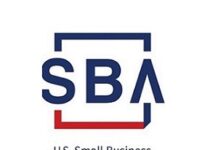
Microsoft Corp., the world’s biggest software maker, has settled a case claiming it used its monopoly position to overcharge Iowa consumers for software products including Windows, Word and Excel.
Microsoft reached an accord with a statewide class of consumers who had purchased Microsoft products since 1994. The plaintiffs claimed the company violated Iowa antitrust law to charge inflated prices by taking advantage of monopolies in personal computer operating systems and software applications.
“The parties in this case have reached a settlement,” Roxanne Conlin, one of the lead consumers’ lawyers, told the judge and jurors in the case last Wednesday.
Details of the settlement weren’t immediately disclosed.
The settlement, which must be approved by a state court judge in Des Moines overseeing the case, ends a trial that began in December and resolves one of the last private antitrust cases Microsoft hasn’t settled or persuaded judges to dismiss. The Iowa customers claimed
$329 million in damages, which could have been tripled under Iowa law.
The case, along with a similar suit in Mississippi, is the last of dozens filed by groups of consumers following an antitrust suit against Microsoft filed by the U.S. government and several states, including Iowa, in 1998.
Microsoft, based in Redmond, Wash., claimed it didn’t limit competition and said the company is successful because it offers high-quality software at low prices.
The case was settled during the consumers’ part of the six-month trial, before Microsoft would present its defense. Judge Scott Rosenberg ordered the parties not to disclose the terms until he gives preliminary approval to the deal, which is expected in April. Conlin told the jury that half of any unclaimed proceeds of the settlement would go to the Iowa Department of Education to buy computer hardware and software.
During the trial, many internal Microsoft documents were made public for the first time, including e-mails that were part of the 25 million documents lawyers for the consumers said they collected in the case.
In a 2004 e-mail to Microsoft Chairman Bill Gates and CEO Steve Ballmer, Windows chief Jim Allchin said “we have lost our way” and “I would buy a Mac today if I was not working at Microsoft.”
In another e-mail, a Microsoft executive said he wanted to “whack”
computer maker Dell Inc. over its relationship with Linux software distributor Red Hat Inc., the same week a federal judge ordered the company not to retaliate against sellers of competing software.
The Iowa case was filed in 2000 by Joe Comes, a Des Moines businessman. It was certified in 2003 as a class action, or group lawsuit, on behalf of indirect purchasers of Microsoft software from May 1994 to June 2006. Such consumers, including individuals and businesses, bought computers loaded with Microsoft software or purchased the software from sources other than the company.
Conlin claimed that Microsoft’s monopoly allowed it to raise the price of Windows by an average of $42.49, and the price of Word by an average of $10.55.
The plaintiffs are divided into separate classes of users of operating systems such as Windows, and buyers of applications software such as Word and Excel. In addition to the alleged overcharges, the plaintiffs claimed Microsoft’s monopoly left users more vulnerable to viruses and other security problems.
Microsoft tried to move the case to federal court and appealed three times to the Iowa Supreme Court in unsuccessful attempts to derail the litigation.
In addition to settling the lawsuit by the U.S. government, Microsoft has reached accords in antitrust cases in 18 states and the District of Columbia, it said in a Jan. 25 filing with the U.S. Securities and Exchange Commission.
Under the settlements, consumers get vouchers for rebates on computers and software. The value of the accords depends on how many vouchers are redeemed. Microsoft estimates the total cost will be from $1.5 billion to $1.8 billion.
Microsoft settled a case in Minnesota in 2004 after a trial began.
Before the Iowa trial, Rosenberg adopted many of the findings from the Justice Department trial, including the conclusion that Microsoft held illegal monopoly power in the market for Intel Corp.-compatible personal computer operating systems before June 1999.












